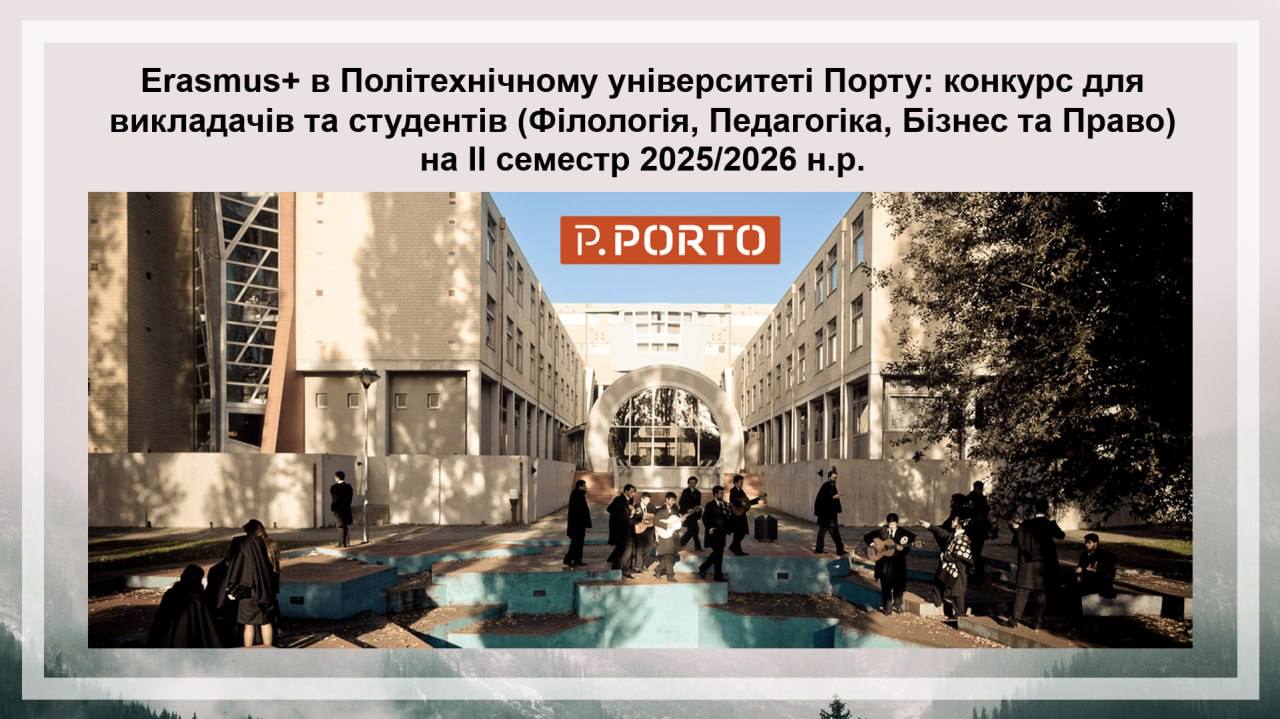On October 20, members of the students’ scientific club “Philology” under the leadership of Candidate of Philology, Associate Professor of the Department of Germanic Philology and Translation Anna Pavelieva held a meeting on the satirical novella of writer Mikhail Bulgakov “Heart of a Dog”. Young literary critics presented their own researches, analyzed in detail the language and stylistic means of the story, made their own interpretations of individual pages of the famous work and compared Ukrainian and English translations.
Mikhail Bulgakov’s novella “Heart of a Dog”, written in January-March 1925, was confiscated from the writer during searches and returned to him only 3 years later, thanks to the patronage of Maxim Gorky. To date, three editions of the work have survived, the first text verified with the original source was published only in 1989, and before that the story was distributed through samizdat (a form of dissident activity in which individuals reproduced censored and underground makeshift publications, often by hand).

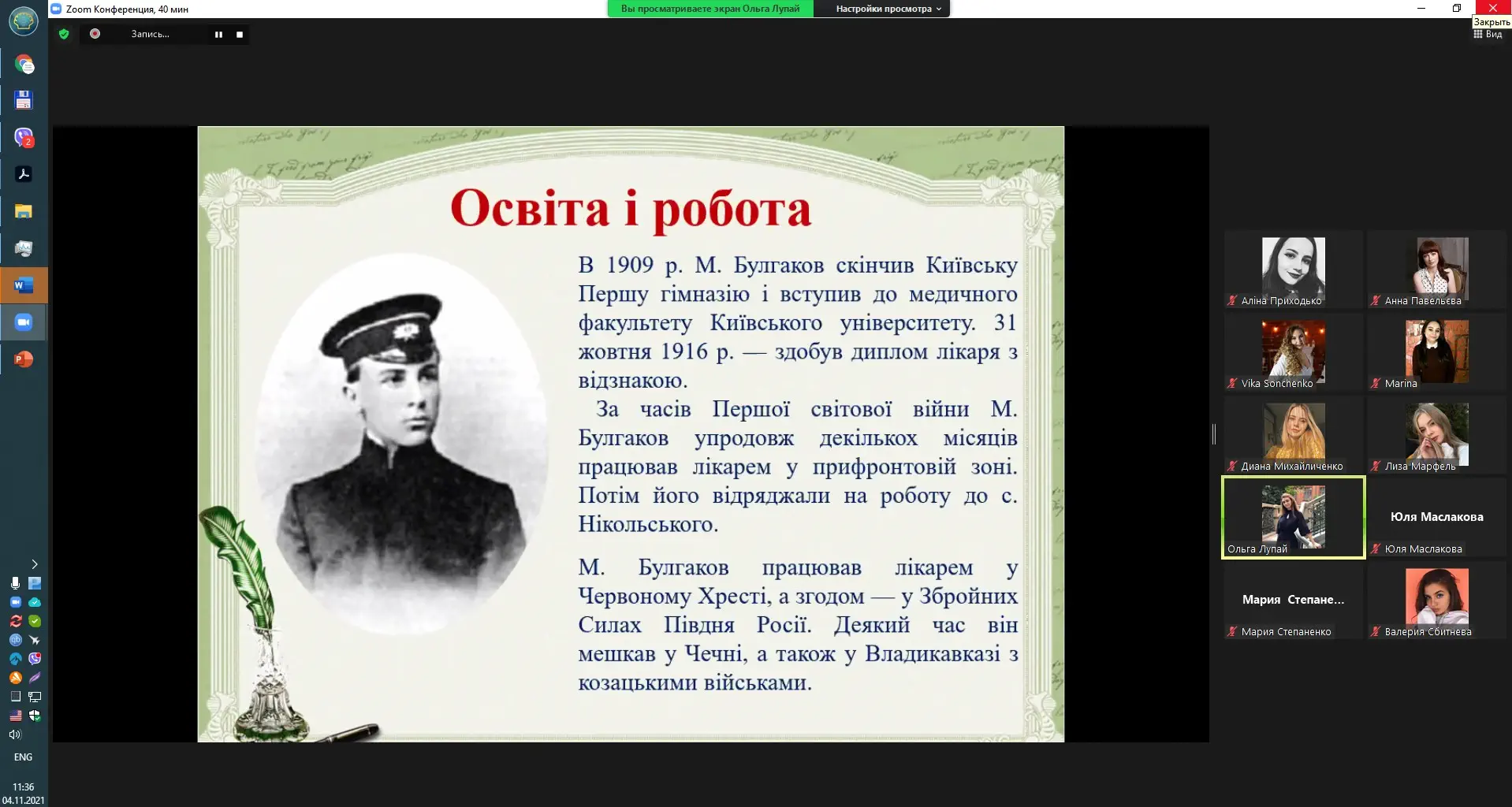
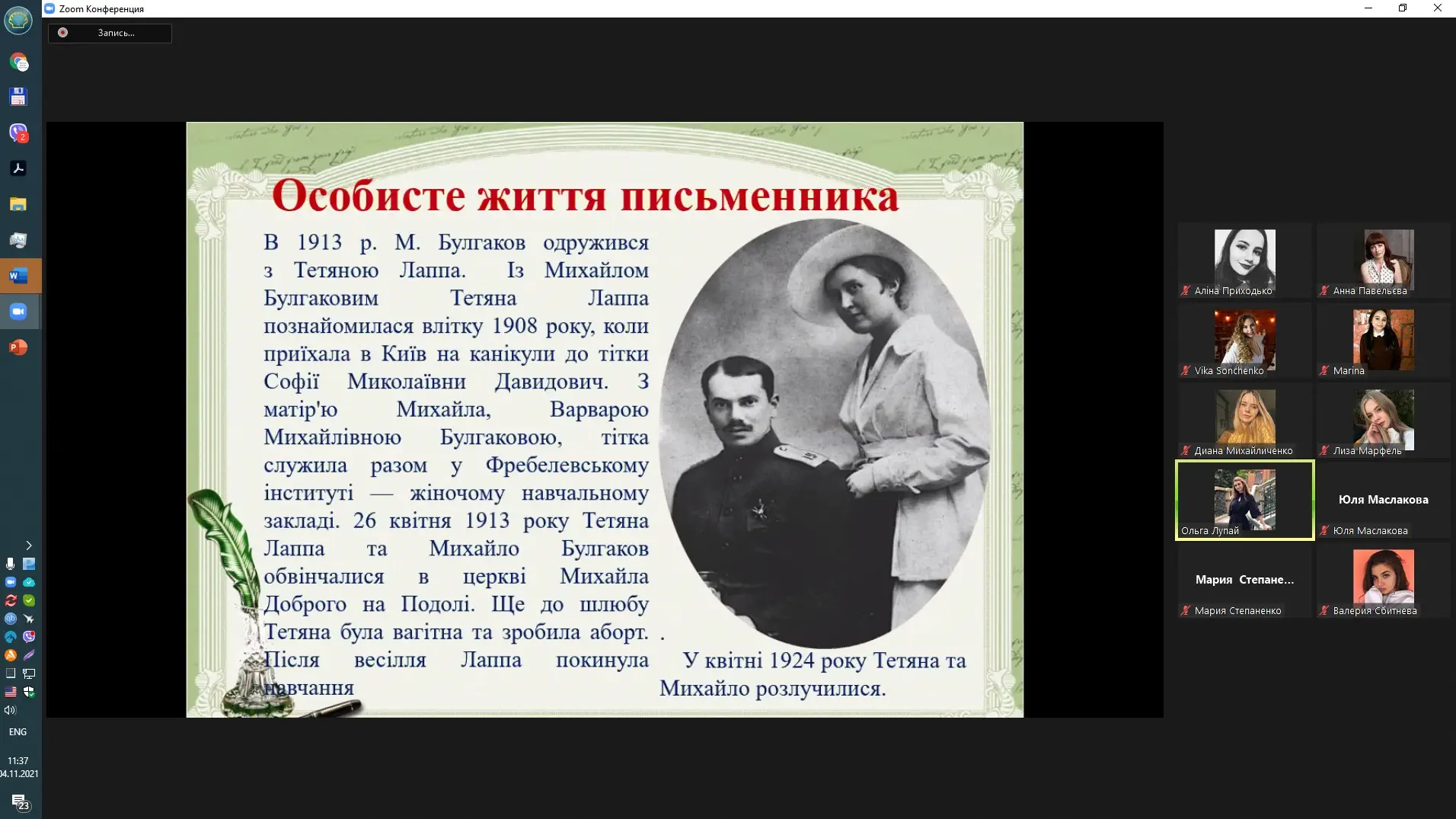

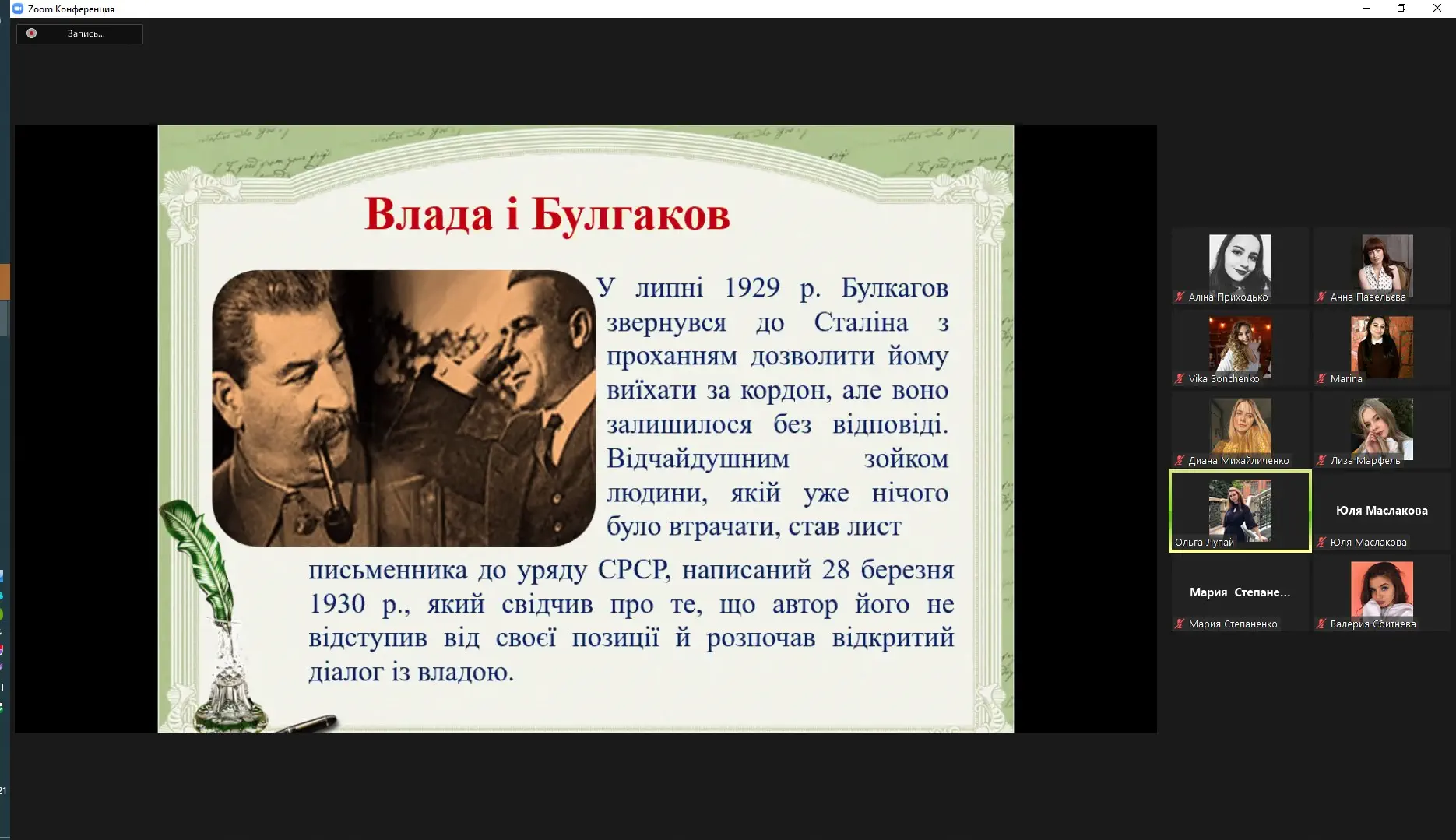
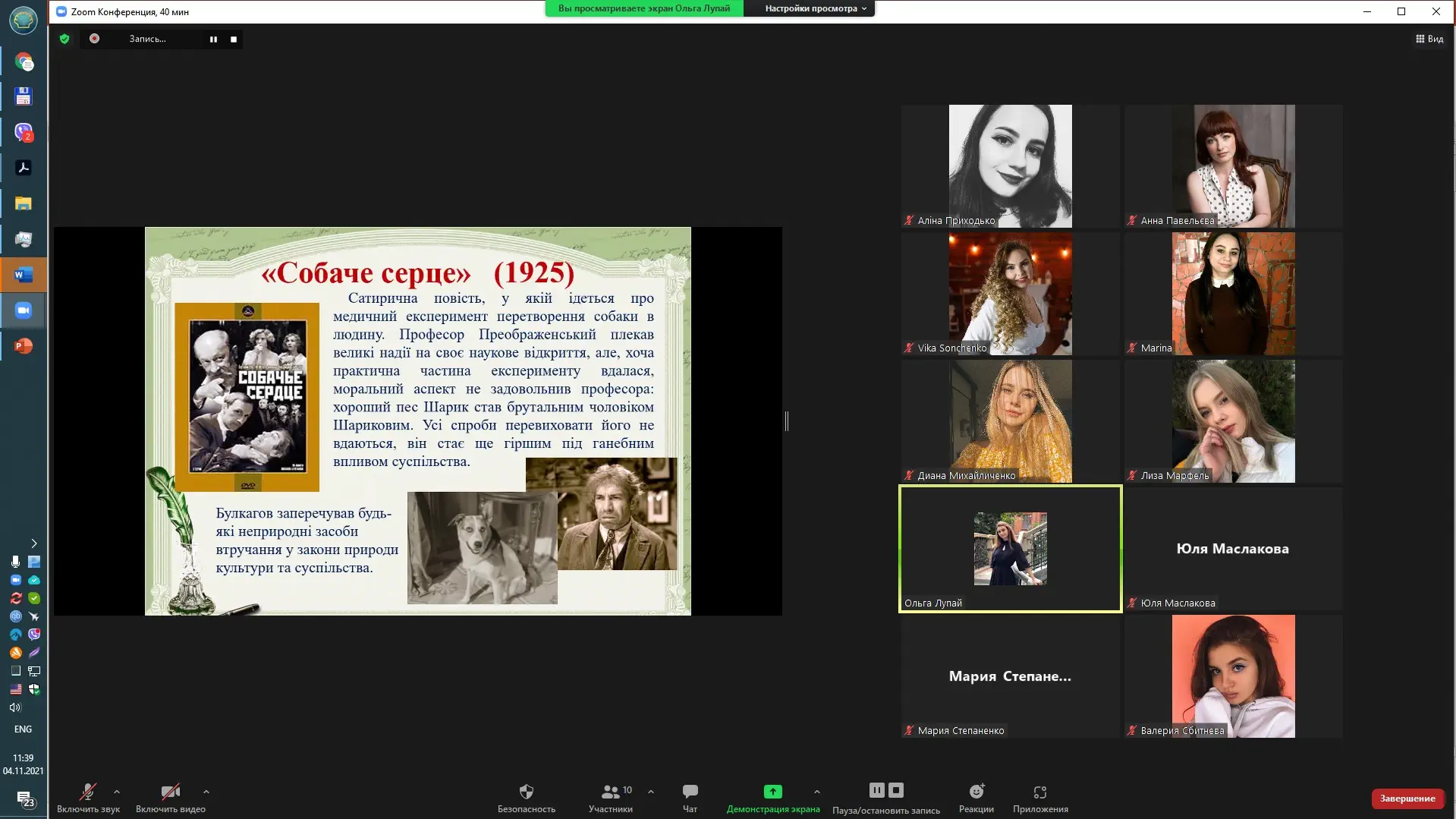
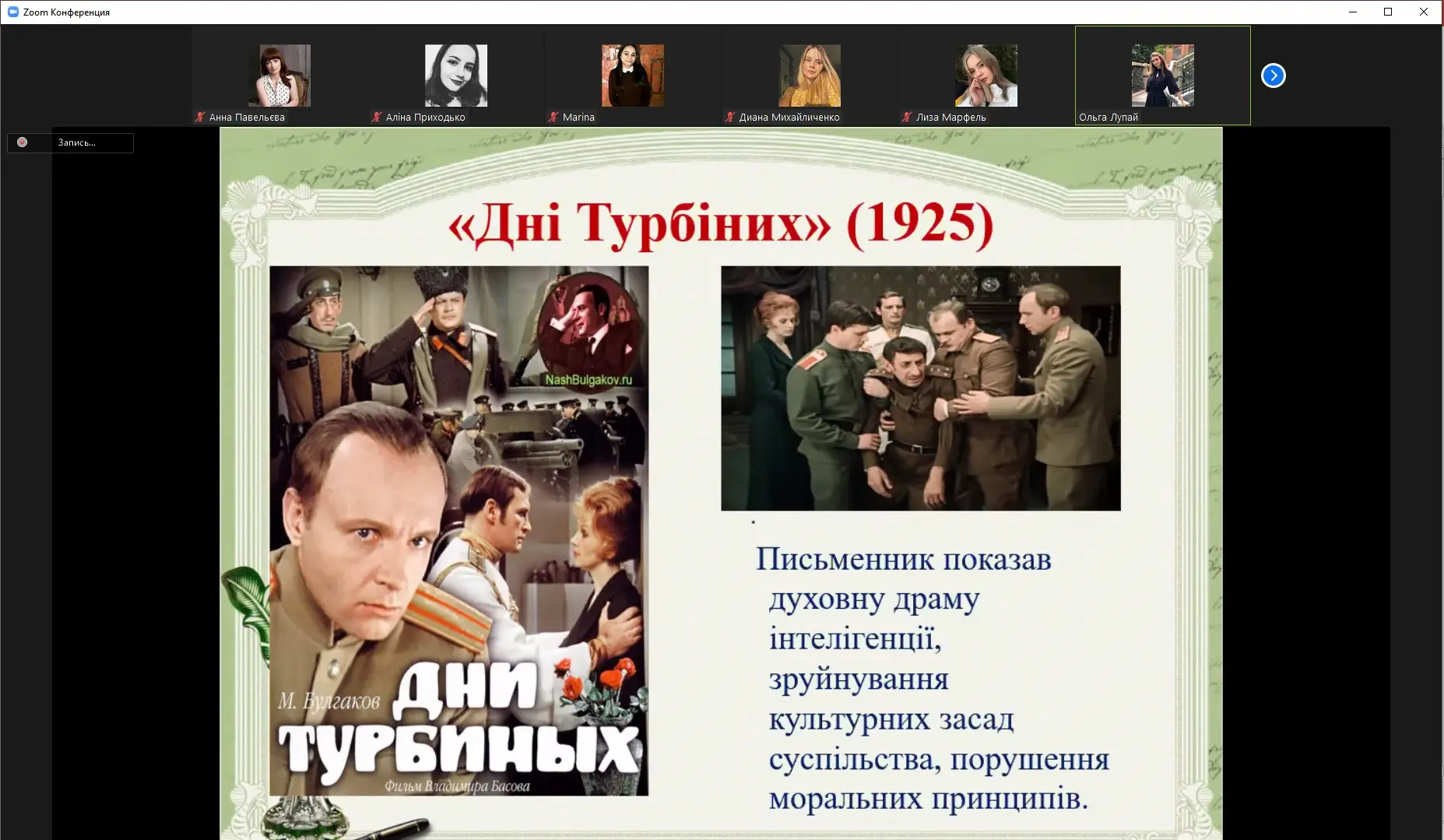
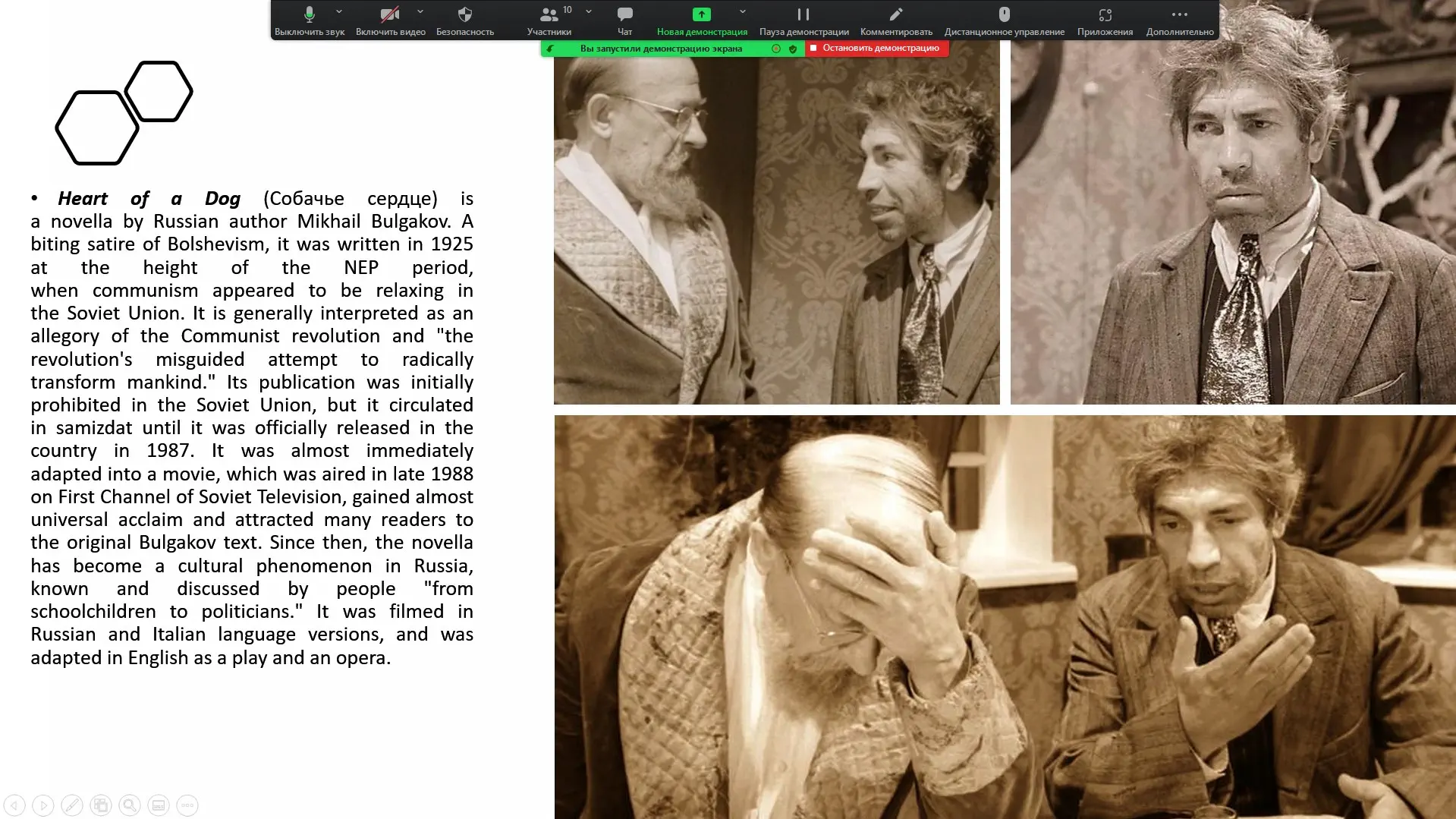
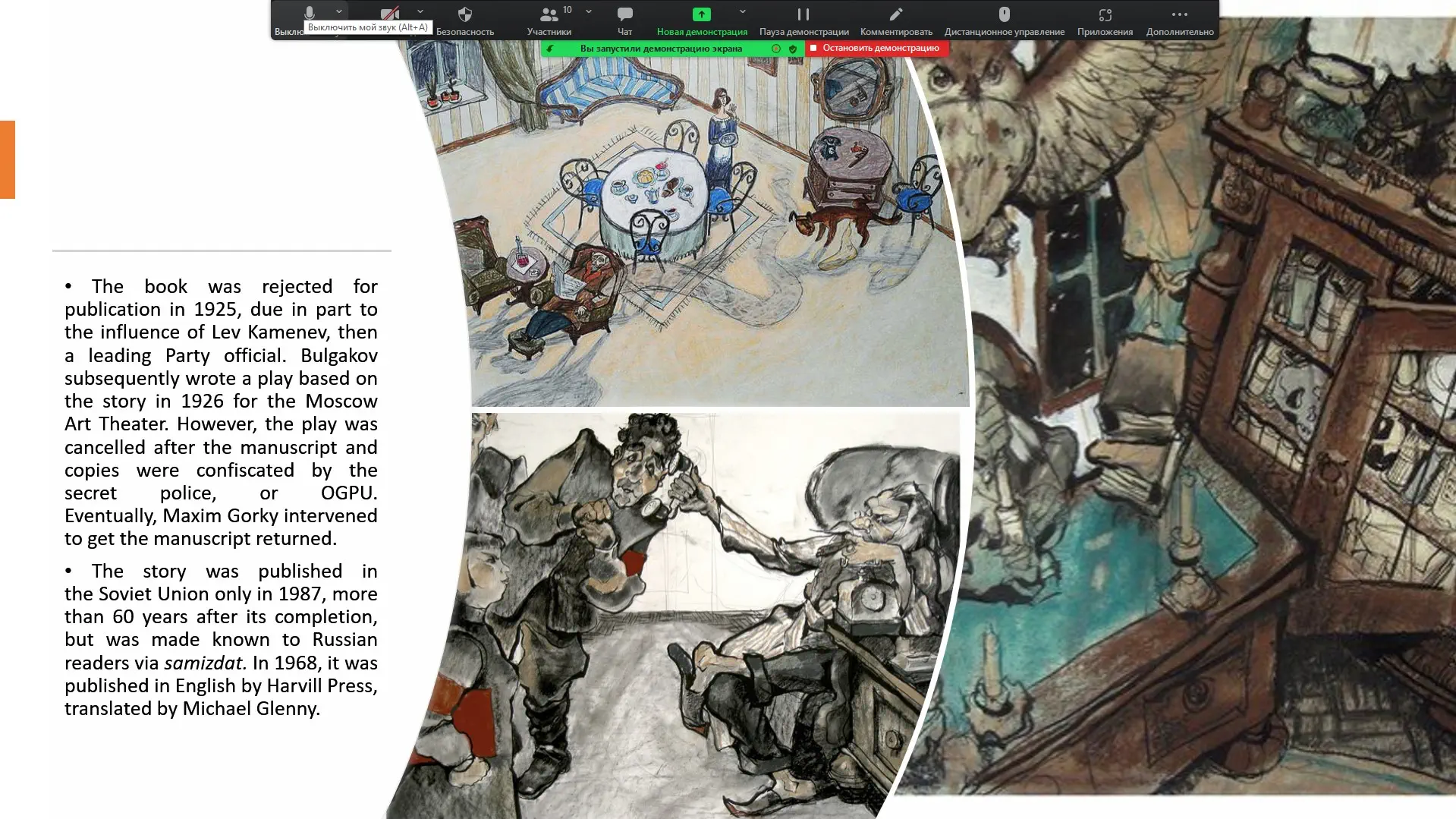
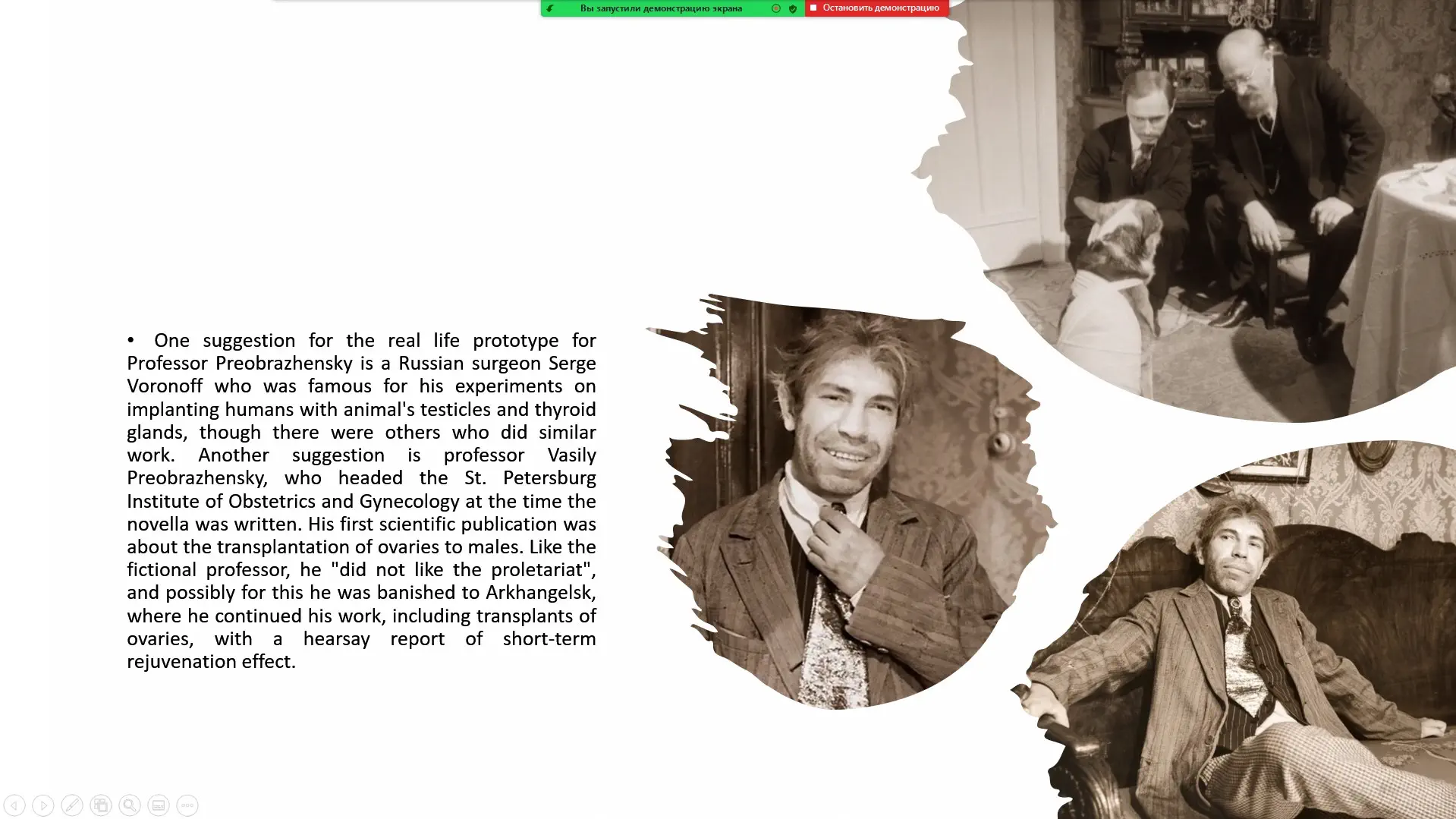
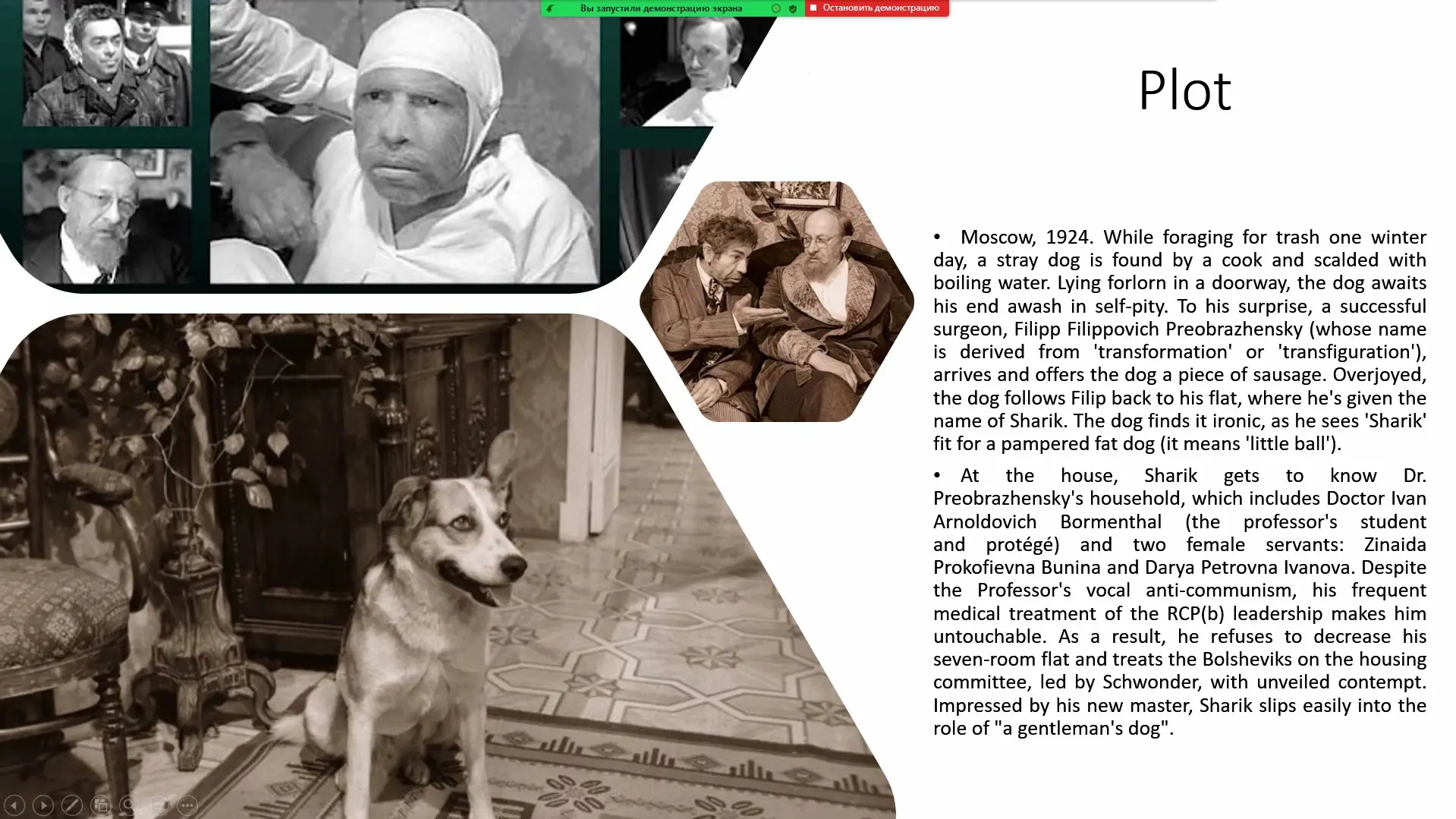
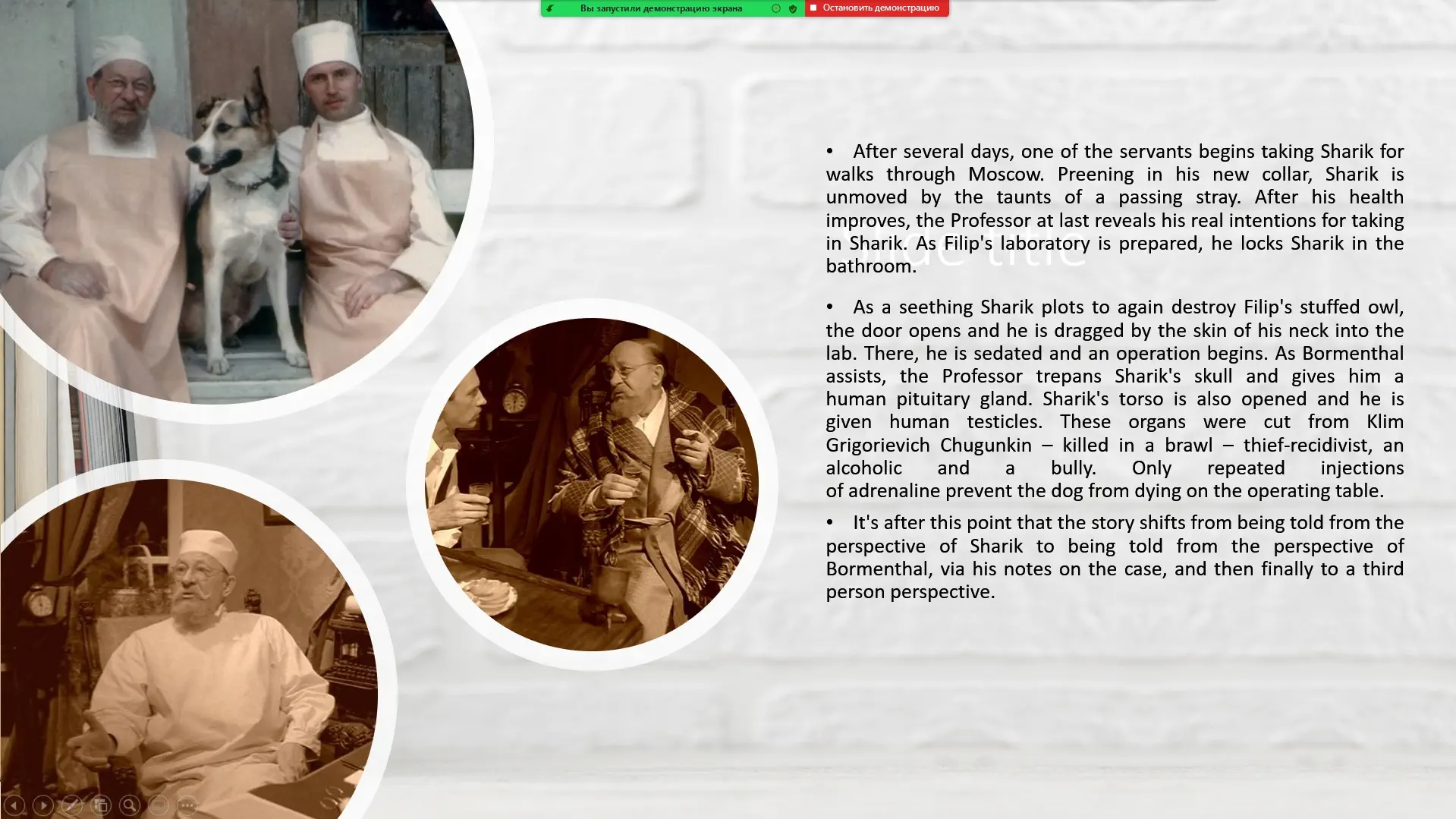
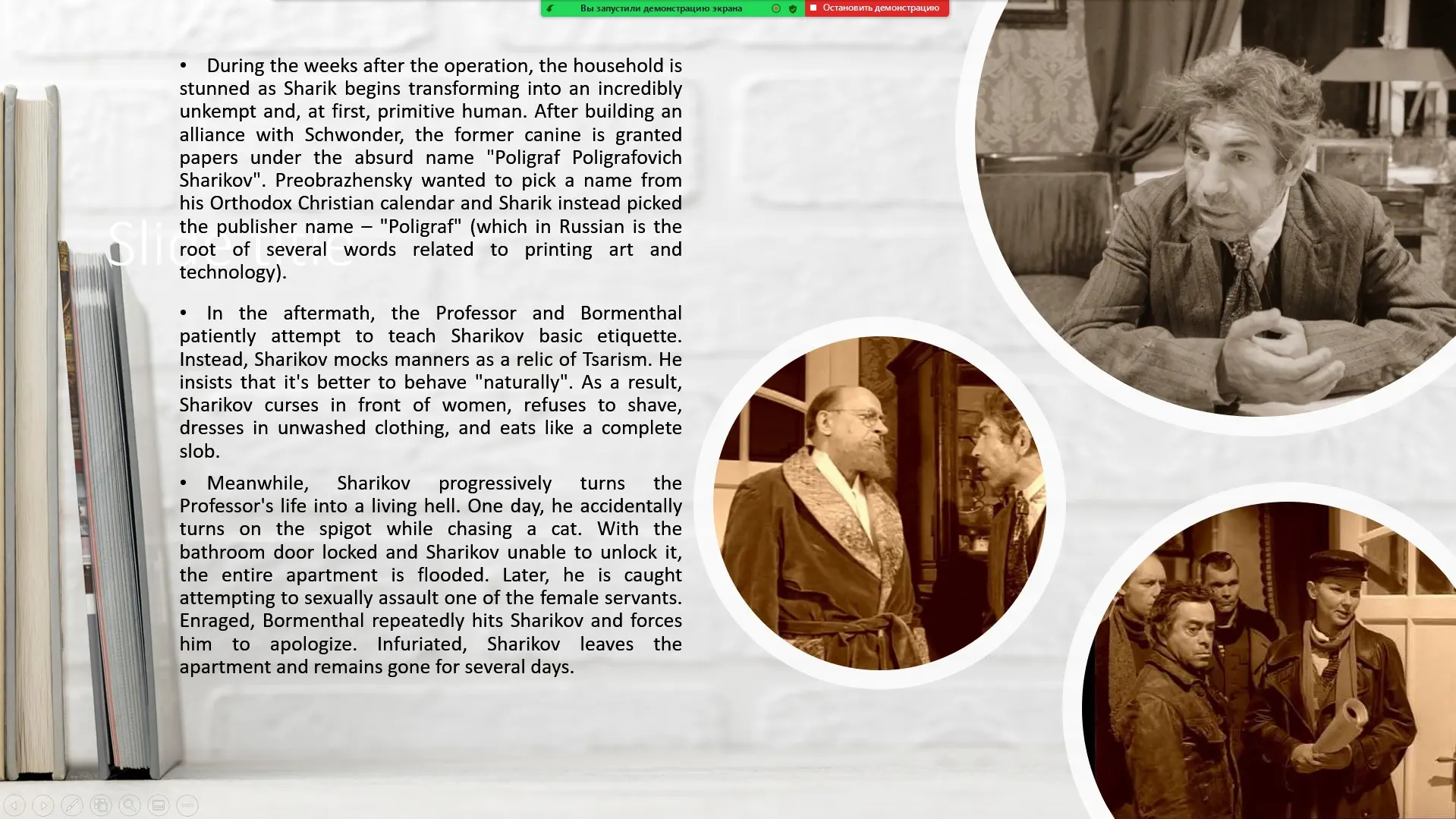
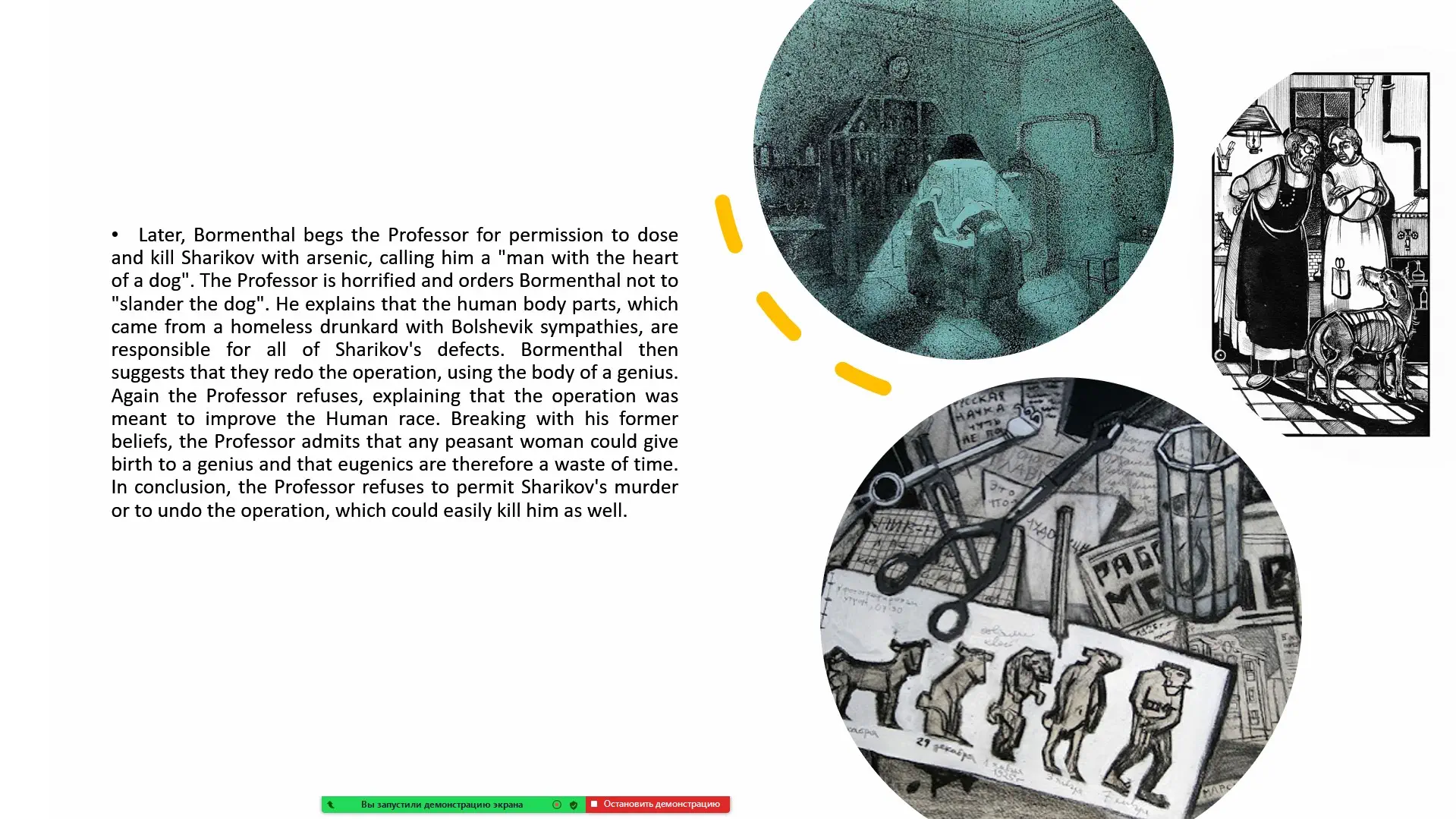
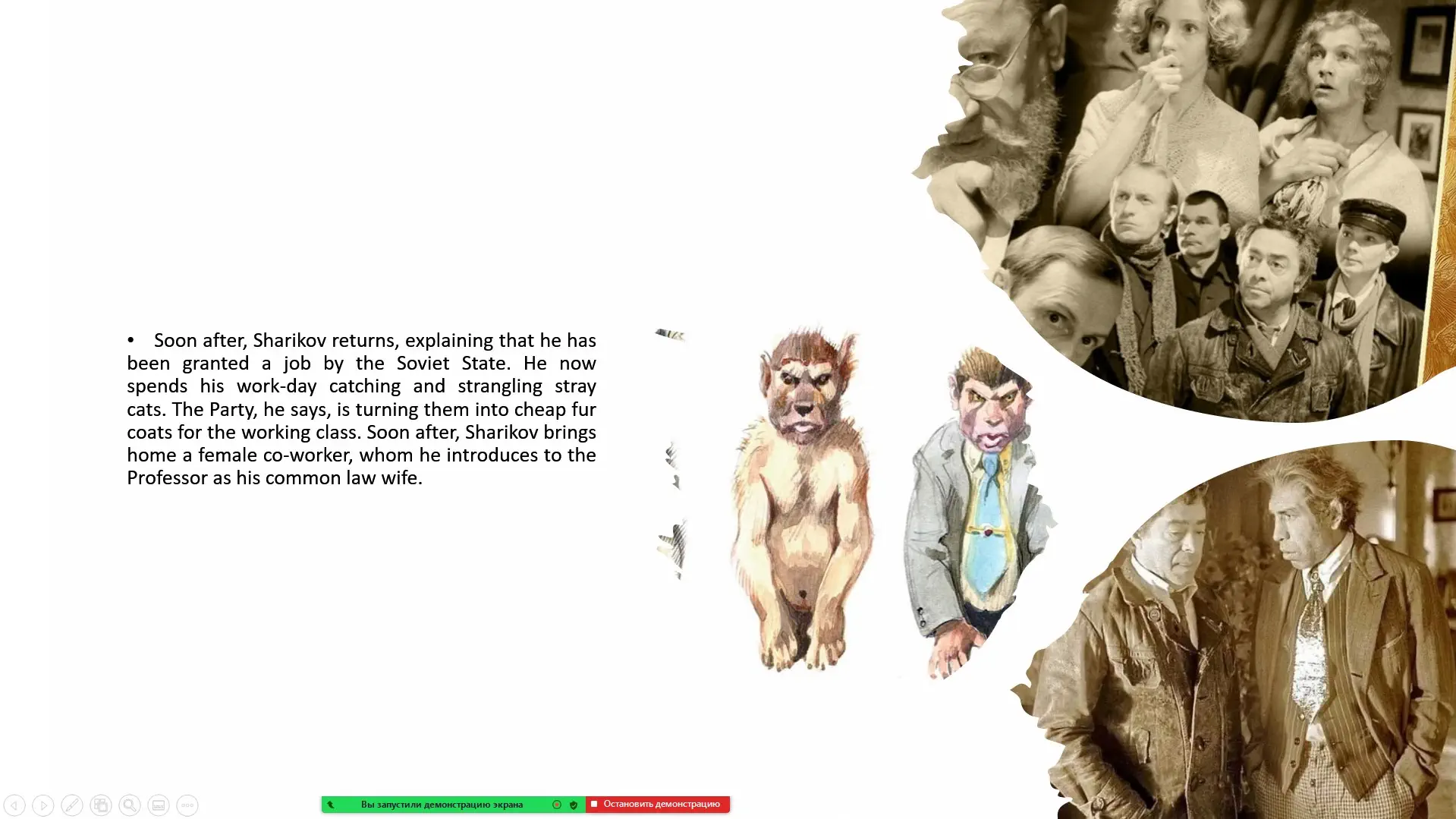
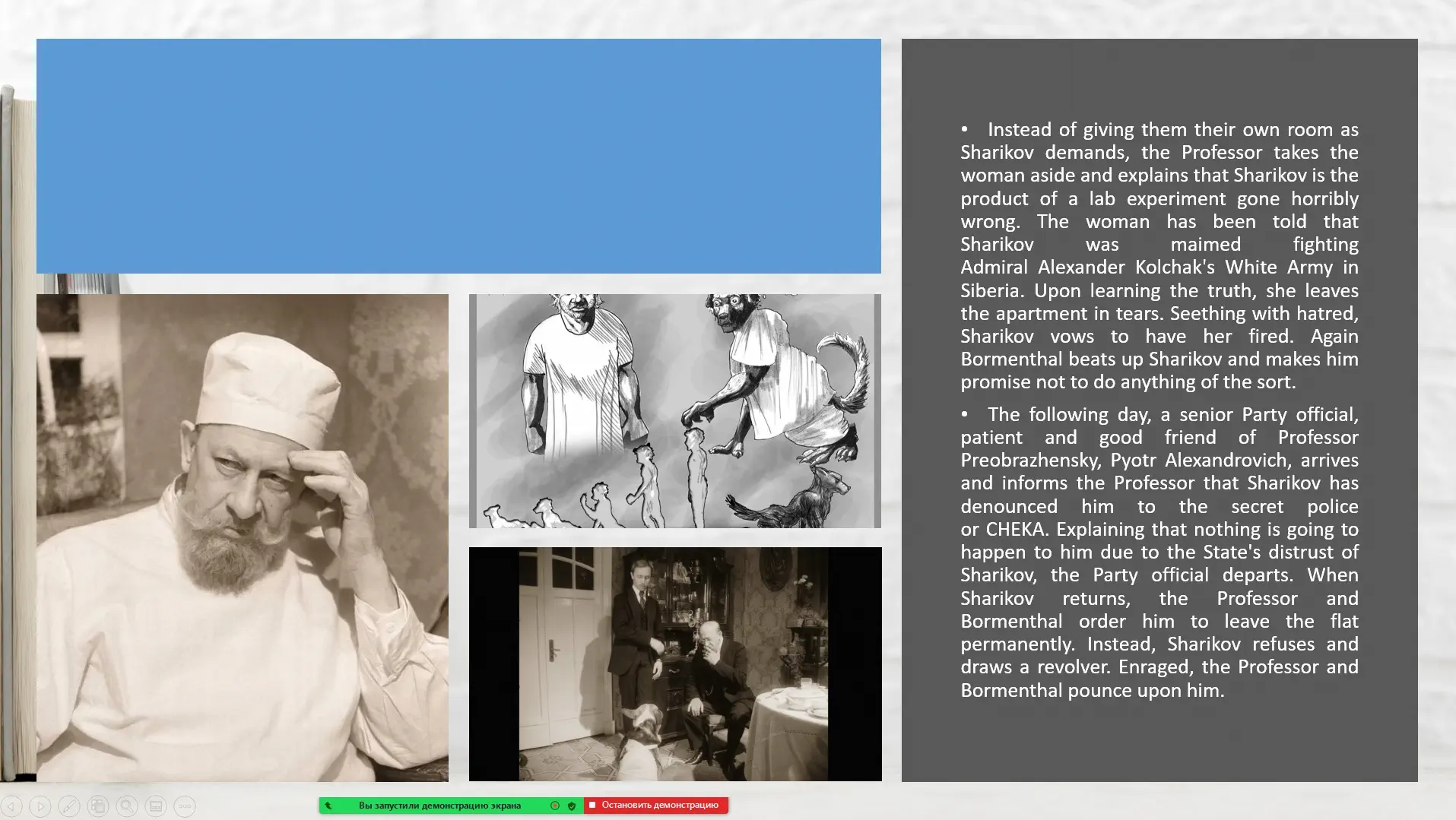
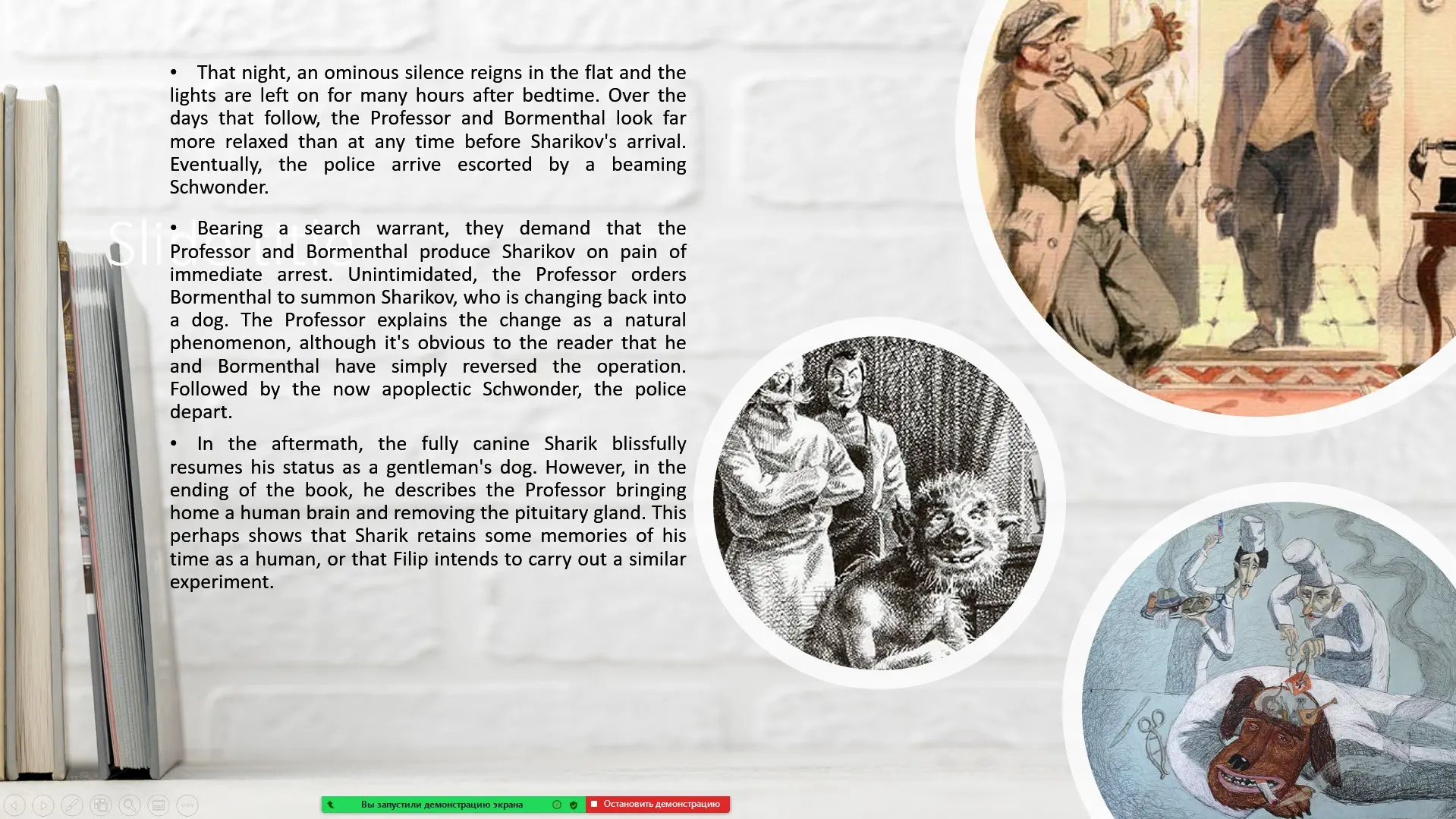
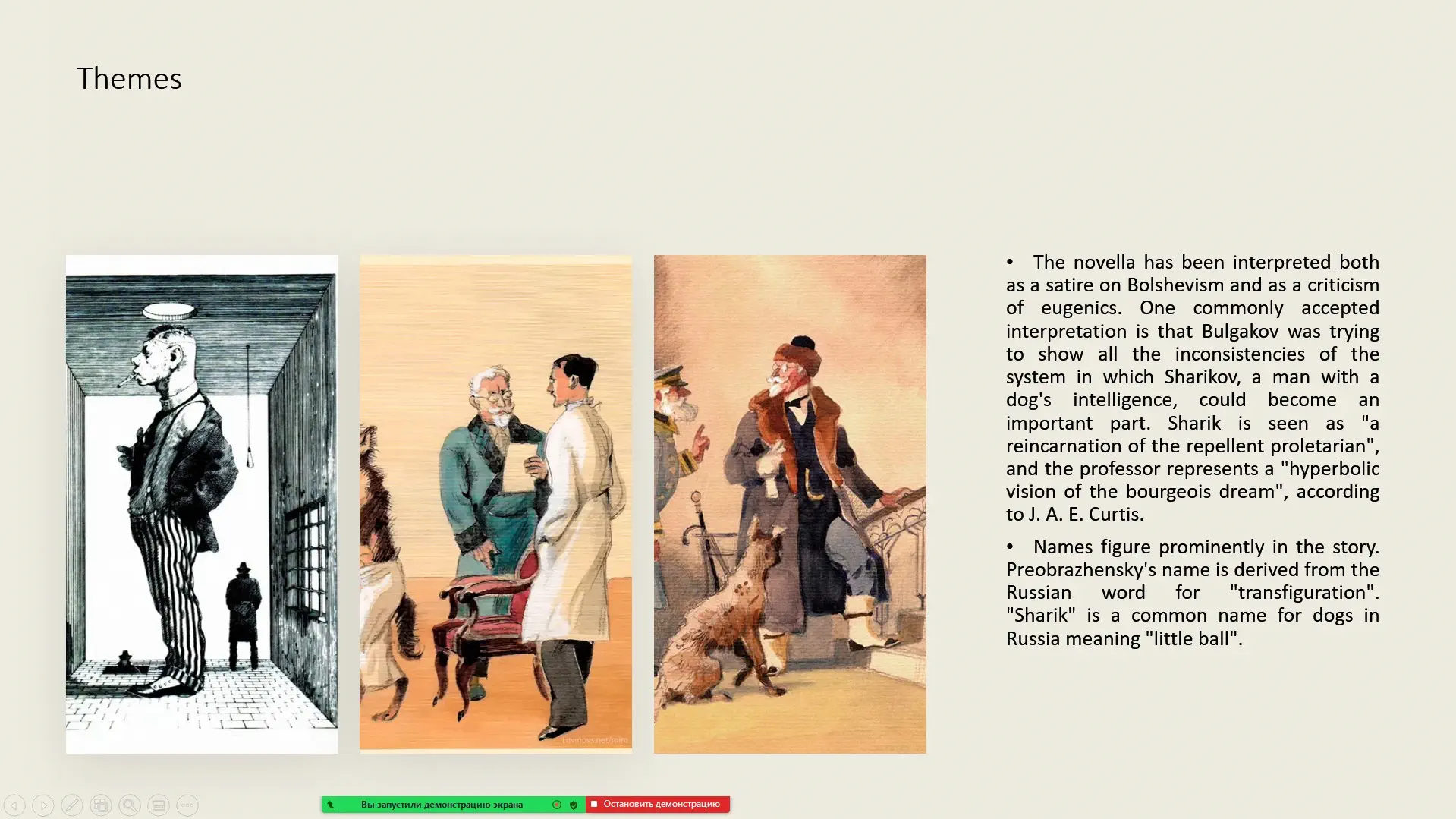
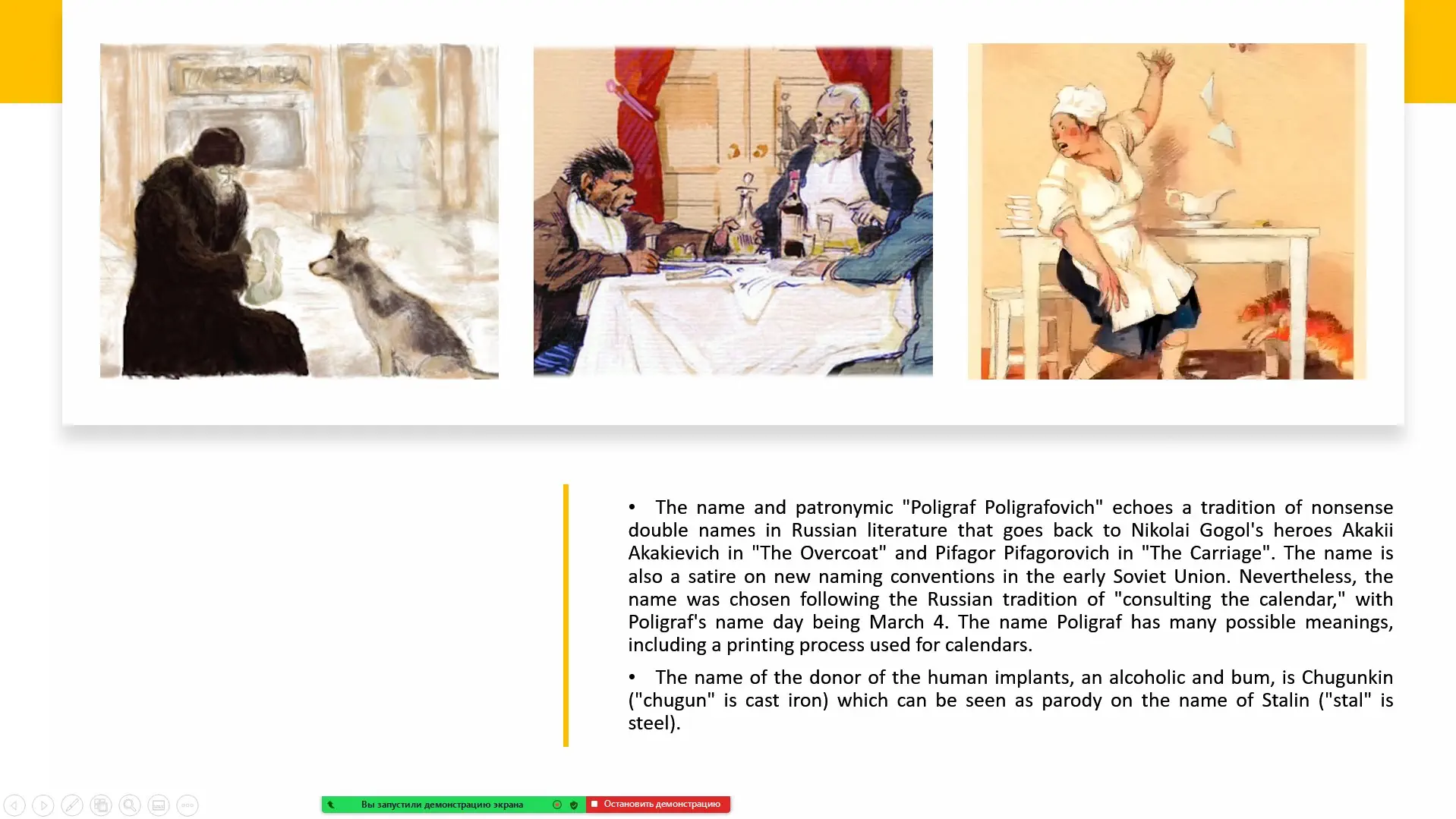
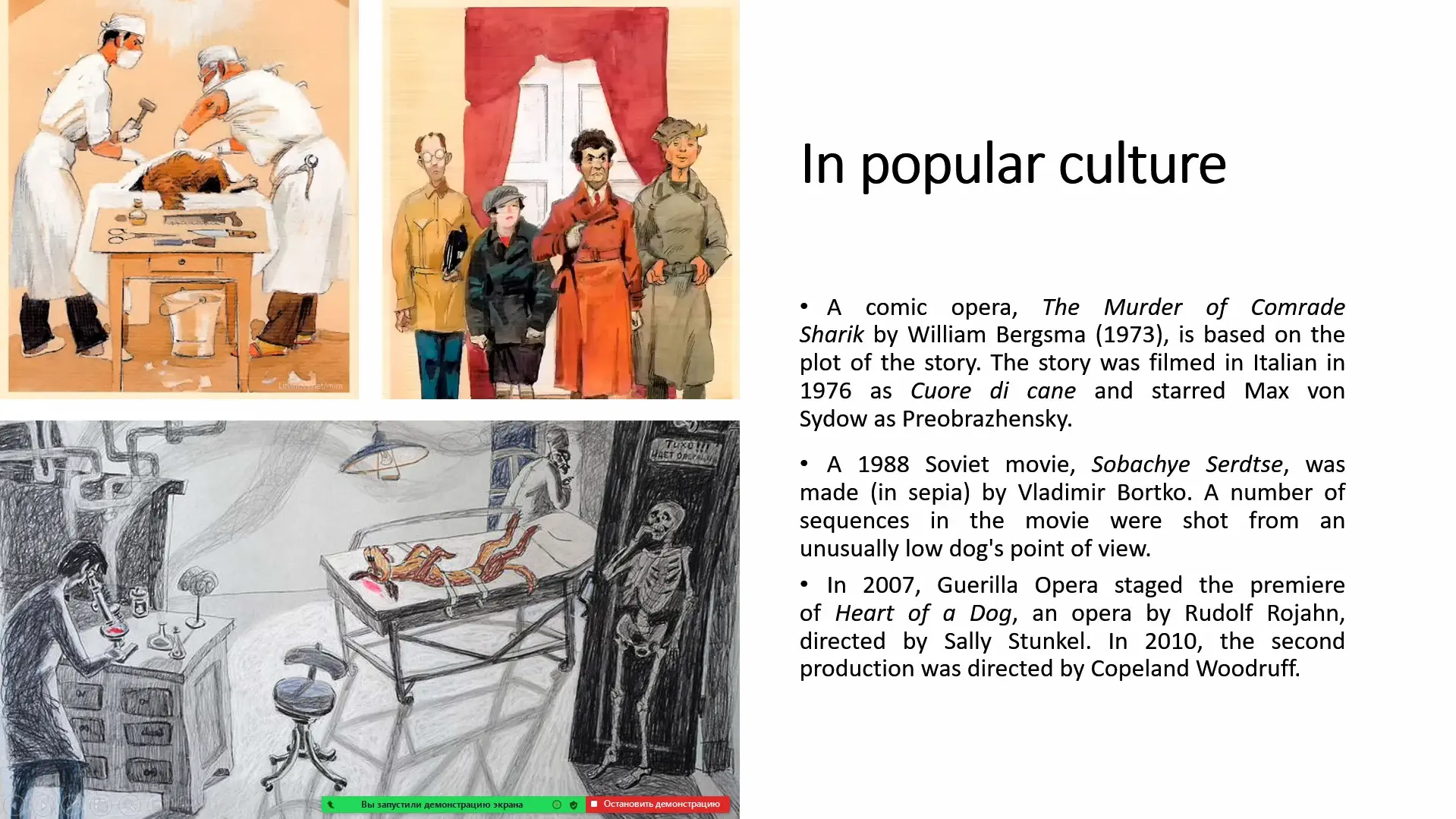
Literary critics consider the novella “Heart of a Dog” to be political satire, and its political interpretation is attributed to the very ideas of “revolution”, “awakening”, and “sociality of the consciousness of the proletariat”. Almost all the characters of the work are perceived as allegorical images of the proletariat and the political elite of the country, and the prototype of Professor Preobrazhensky is the famous surgeon and uncle of the writer N. M. Pokrovsky. The leitmotif of the story resonates with many literary works of the twenties, when after the revolutionary storms and the transition to a peaceful life in society there was a certain frustration and confusion due to the fact that the revolution did not solve the eternal problems of mankind.
“The topic of our today’s meeting was not chosen by chance, since last academic year the students already addressed the famous novel “The Master and Margarita” and held a meeting under the symbolic title “Manuscripts do not burn”, dedicated to the 130th anniversary of prose writer Mikhail Bulgakov.
During the discussion of the creative heritage of the mystic writer, students expressed a desire to conduct in the future literary and translation analysis of another outstanding work of the creator – novella “Heart of a Dog”. Therefore, in October we decided to explore the genre, stylistic, linguistic features of the work as well as the problems of its translation into Ukrainian and English. In particular, in our research we considered the main ways of translating phraseological units, since phraseology is the most vivid means of expression and requires the translator to be creative and make original translation decisions. Philology students analyzed already known translations of the story and offered their own quite original options, which provoked heated discussions,” – commented the head of the club, Candidate of Philological Sciences, Associate Professor of the Department of Germanic Philology and Translation of the National University “Yuri Kondratyuk Poltava Polytechnic” Anna Pavelieva.
“In the story “Heart of a Dog” there are more modified and individually-authorial phraseological units, so their transmission in other languages has become a difficult task for translators. At the meeting a lot was considered: full and relative equivalents, phraseological analogues, tracing, descriptive translation and the most controversial translation methods used to convey non-equivalent vocabulary – contextual substitutions, omissions and compensations.
At previous meetings of the club we have already studied phraseology based on the early works of Mykola Hohol, so personally I was interested in the translating analysis of phraseological units in the story of Mikhail Bulgakov,” – said the club member, third-year student of “Philology” specialty Maryna Mykhailova.
Previously, at a meeting of the scientific club, students discussed the work of the mystic writer, exchanged life hacks for translating advertising slogans from global brands, analyzed the creative heritage of the famous Polish science fictionist and explored little-known pages of the famous French classicist.
It should be recalled that meetings of the students’ scientific club “Philology” are held at the Faculty of Humanities of Poltava Polytechnic at least once a month. Connoisseurs of the colorful literary word and all those interested are invited to take part.
For further information on the time and place of the scientific club, please contact the Department of Germanic Philology and Translation (Room 310-C) or directly to the head of the club – Anna Pavelieva, at number 095-91-08-192.
Media Center of
National University “Yuri Kondratyuk Poltava Polytechnic”


